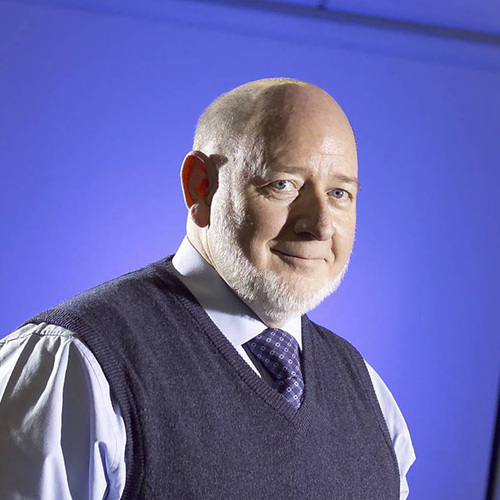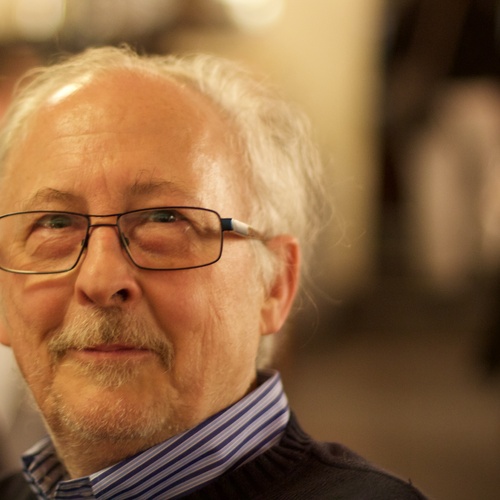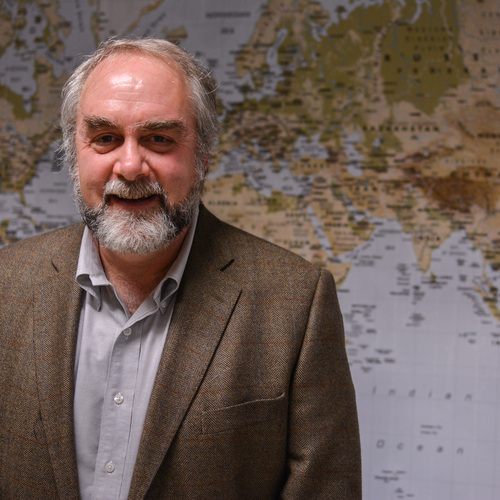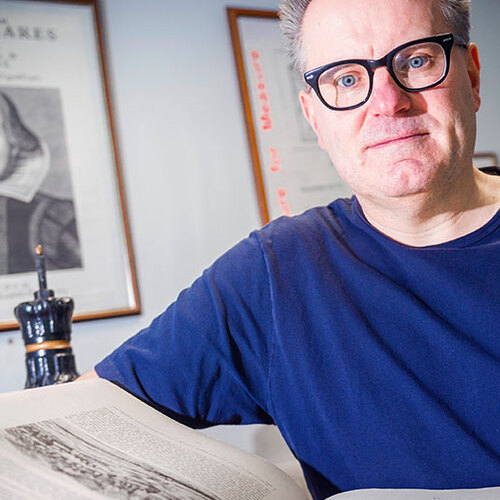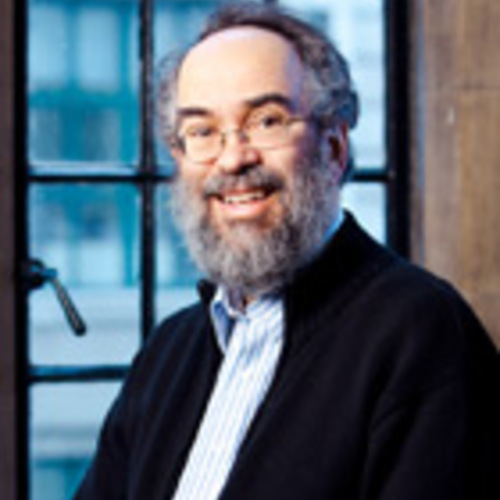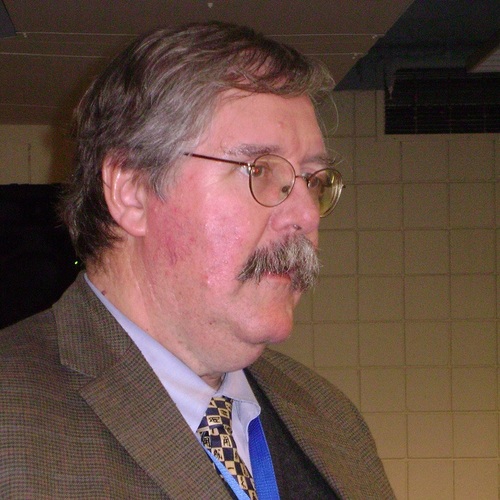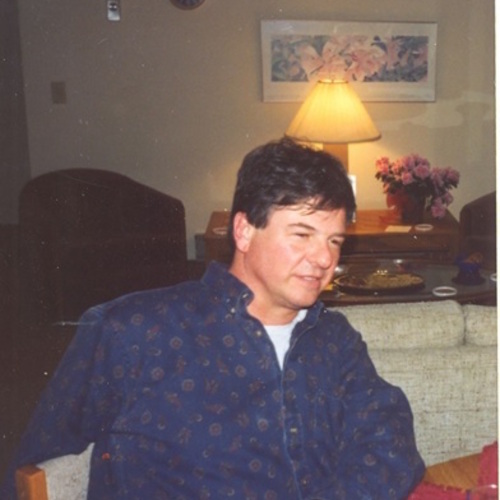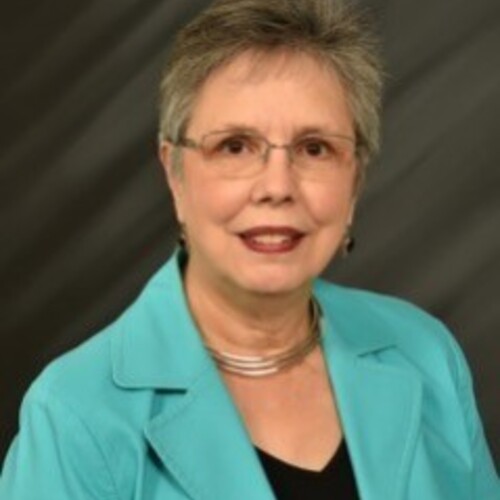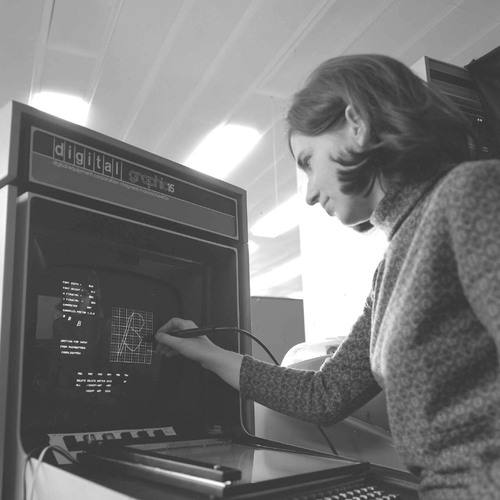Items
View as:
Collaboration Must Be Fundamental or It's Not Going to Work: an Oral History Conversation between Harold Short and Julianne Nyhan
Harold Short recounts that his interest in Computing and the Humanities goes back to when he was an undergraduate in English and French at a university in the former Rhodesia (now Zimbabwe). There, whilst undertaking summer work in the library, he saw first-hand the potential of digital methods. After arriving in London in 1972 he took an Open University degree in mathematics, computing and systems. Among his early influences he identifies the reading he did on matters related to cognitive science whilst undertaking a postgraduate certificated in education. In the UK he worked at the BBC as programmer, systems analyst and then systems manager. In 1988 he moved to King's College London to take up the post of Assistant Director in Computing Services for Humanities and Information Management. One of his first tasks was to work with the Humanities Faculty to develop an undergraduate programme in humanities and computing. The first digital humanities conference he attended was the first joint international conference of ALLC and ACH, held at the University Toronto in 1989, which c. 450 people attended. He reflects on aspects of the institutional shape of the field towards the end of the 1980s, including the key Centres that existed then, the first meeting of the Association for Literary and Linguistic Computing (ALLC) and those who were active in it such as Roy Wisbey, Susan Hockey and the late Antonio Zampolli. He gives a detailed discussion of the development of what is now the Department of Digital Humanities in King's College London, both in terms of the administrative and institutional issues involved, as well as the intellectual. He also reflects on some of the most successful collaborations that the Department has been involved in, for example, the AHRC funded Henry III Fine Rolls project, and the conditions and working practices that characterised them. He closes by discussing his impressions about the movement of scholars into and out of the discipline and of the institutional issues that have had an impact on digital humanities centres.
Questioning, Asking and Enduring Curiosity: an Oral History Conversation between Julianne Nyhan and Willard McCarty
This interview was carried out with Willard McCarty on Tuesday 27th March, 2012 in University College London. He recounts that his earliest encounter with computing was in the Lawrence Radiation Laboratory in Berkley where he worked with semi-automated scanning equipment for the Alvarez high-energy physics projects. After his dreams of becoming a physicist were thwarted he transferred to Reed College. There he did not have the opportunity to take formal training in computing; for the most part, Computer Science departments did not exist then. So, he learned to programme “on the job” with help from a talented physicist turned computer programmer named Bill Gates (no association with Microsoft). His first encounter with what we now call digital humanities was at the University of Toronto where he worked on the Records of Early English Drama project whilst undertaking a PhD on 17th century non-dramatic poetry. In 1984/5, as he was finishing his PhD, he accepted an academic support role at the Centre for Computing in the Humanities at Toronto, where he remained until 1996 when he accepted an academic post in King's College London. In Toronto he was keenly aware of the staff-faculty divide and the marginalised position of those who used computers in Humanities research. Nevertheless, the opportunities that the role brought to meet with a range of scholars interested in computing had a lasting influence on him. So too, with funding from the Social Sciences and Humanities Research Council of Canada he was able to undertake a research project on Ovid's Metamorphosis. He closes the interview by reflecting on his early involvement with the conference scene and people who have influenced him, from academics to his calligraphy teacher Lloyd Reynolds.
Trading Stories: an Oral History Conversation between Geoffrey Rockwell and Julianne Nyhan
This extended interview with Geoffrey Rockwell was carried out via Skype on the 28th April 2012. He narrates that he had been aware of computing developments when growing up in Italy but it was in college in the late 1970s that he took formal training in computing. He bought his first computer, an Apple II clone, after graduation when he was working as a teacher in the Middle East. Throughout the interview he reflects on the various computers he has used and how the mouse that he used with an early Macintosh instinctively appealed to him. By the mid-1980s he was attending graduate school in the University of Toronto and was accepted on to the Apple Research Partnership Programme, which enabled him to be embedded in the central University of Toronto Computing Services; he went on to hold a full time position there. Also taking a PhD in Philosophy, he spent many lunch times talking with John Bradley. This resulted in the building of text analysis tools and their application to Hume's Dialogues Concerning Natural Religion, as well as some of the earliest, if not the earliest, conference paper on visualisation in the digital humanities community. He reflects on the wide range of influences that shaped and inspired his early work in the field, for example, the Research Computing Group at the University of Toronto and their work in visual programming environments. In 1994 he applied, and was hired at McMaster University to what he believes was the first job openly advertised as a humanities computing position in Canada. After exploring the opposition to computing that he encountered he reflects that the image of the underdog has perhaps become a foundational myth of digital humanities and questions whether it is still a useful one.
I heard about the arrival of the computer: Hans Rutimann and Julianne Nyhan
This oral history interview was conducted between Hans Rutimann and Julianne Nyhan via skype on 15 November 2012. Rutimann was provided with the core questions in advance of the interview. In this interview he recalls that his first encounter with computing was at the MLA, c.1968/9. Following a minor scandal at the organisation, which resulted in the dismissal of staff connected with the newly arrived IBM 360/20, Rutimann was persuaded to take on some of their duties. After training with IBM in operating and programming he set about transferring the membership list (about 30,000 contact details) from an 'addressograph machine' to punched cards. After its early use to support such administrative tasks the MLA began investigating the feasibility of making the research tool called the MLA International Bibliography remotely accessible. Rutimann worked with Lockheed to achieve this. It was in Lockheed's information retrieval lab that the system known as Dialog, an online information retrieval system was developed (Summit 1967). He vividly recalls how he travelled the 3,000 miles to San Francisco to deliver the magnetic tape to Lockheed so that they could make the database available online. He “jumped for joy” when, once back in New York, the data was available to him via the newly acquired terminal of the MLA. While making clear that his roles in MLA, Mellon and EIF have primarily been enabling ones (and to this we can add advocacy, strategy and foresight) he also recalls the strong influence that Joseph Raben had on him and mentions some of the projects and conferences that he found particularly memorable.
So, into the chopper it went: Gabriel Egan and Julianne Nyhan
This interview took place at the AHRC-organised Digital Transformations Moot held in London, UK on 19 November 2012. In it Egan recalls his earliest encounters with computing when he was a schoolboy along with some memories of how computers were represented in science fiction novels, TV programmes and advertising. His first job, at the age of 17, was as a Mainframe Computer Operator. He continued to work in this sector throughout the 1980s but by the end of the decade he recognised that such roles would inevitably disappear. In 1990 he returned to University where he completed a BA, MA and PhD over the next 7 years. He recalls his shock upon returning to University as he realised how little use was then made of computers in English Studies. Nevertheless, he bought a relatively cheap, second-hand Sinclair Z88 and took all his notes on it. Later he also digitised his library of 3000 books, destroying their hard copy versions in the process. The interview contains a host of reflections about the differences that computing techniques and resources have made to Shakespeare Studies over the past years, along with insightful observations about the contributions and limitations of DH. In this interview Egan describes himself as a 'would be Digital Humanist'; indeed, it is the landscape that he describes from this vantage point that makes his interview so interesting and useful.
Getting computers into Humanists' thinking: John Bradley and Julianne Nyhan
This interview tool place in Bradley's office in Drury Lane, King's College London on 9 September 2014 around 11.30am. Bradley recalls that his interest in computing started in the early '60s. As computer time was not then available to him he sometimes wrote out in longhand the FORTRAN code he was beginning to learn from books. One of his earliest encounters with Humanities Computing was the concordance to Diodorus Siculus that he programmed in the late '70s. The printed concordance that resulted filled the back of a station wagon. The burgeoning Humanities Computing community in Toronto at that time collaborated both with the University of Toronto Computer Services Department (where Bradley was based) and the Centre for Computing in the Humanities, founded by Ian Lancashire. Aware of the small but significant interest in text analysis that existed in Toronto at that time and pondering the implications of the shift from batch to interactive computing he began work as a developer of Text Analysis Computing Tools (TACT). He also recalls his later work on Pliny, a personal note management system, and how it was at least partly undertaken in response to the lack of engagement with computational text analysis he noted among Humanists. In addition to other themes, he reflects at various points during the interview on models of partnership between Academic and Technical experts.
I mourned the University for a long time: Michael Sperberg-McQueen and Julianne Nyhan
This interview took place on 9 July 2014 at the Digital Humanities Conference, Lausanne, Switzerland. In it Sperberg-McQueen recalls having had some exposure to programming in 1967, as a thirteen year-old. His next notable encounter with computing was as a graduate student when he set about using computers to make a bibliography of secondary literature on the Elder Edda. His earliest encounters with Humanities Computing were via books, and he mentions proceedings from the 'Concordances and the Dictionary of Old English' conference and a book by Susan Hockey (see below) as especially influential on him. In 1985 a position in the Princeton University Computing Centre that required an advanced degree in Humanities and knowledge of computing became available; he took on the post while finishing his PhD dissertation and continuing to apply for tenure-track positions. Around this time he also began attending the 'International Conference on Computers and the Humanities' series and in this interview he describes some of the encounters that took place at those conferences and contributed to the formation of projects like TEI. As well as reflecting on his role in TEI he also compares and contrasts this experience with his work in W3C. On the whole, a somewhat ambivalent attitude towards his career emerges from the interview: he evokes Dorothy Sayers to communicate how the application of computers to the Humanities 'overmastered' him. Yet, he poignantly recalls how his first love was German medieval languages and literature and the profound sense of loss he felt at not securing an academic post related to this.
There had to be a better way: John Nitti and Julianne Nyhan
This oral history conversation was carried out via Skype on 17 October 2013 at 18:00 GMT. Nitti was provided with the core questions in advance of the interview. He recalls that his first encounter with computing came about when a fellow PhD student asked him to visit the campus computing facility of the University of Wisconsin-Madison, where a new concordancing programme had recently been made available via the campus mainframe, the UNIVAC. He found the computing that he encountered there rather primitive: input was in uppercase letters only and via a keypunch machine. Nevertheless, the possibility of using computing in research stuck with him and when his mentor Professor Lloyd Kasten agreed that the Old Spanish Dictionary project should be computerised, Nitti set to work. He won his first significant NEH grant c.1972; up to that point (and, where necessary, continuing for some years after) Kasten cheerfully financed out of his own pocket some of the technology that Nitti adapted to the project. In this interview Nitti gives a fascinating insight into his dissatisfaction with both the state and provision of the computing that he encountered, especially during the 1970s and early 80s. He describes how he circumvented such problems not only via his innovative use of technology but also through the many collaborations he developed with the commercial and professional sectors. As well as describing how he and Kasten set up the Hispanic Seminary of Medieval Studies (HSMS) he also mentions less formal processes of knowledge dissemination, for example, his so-called lecture 'roadshow' in the USA and Canada where he demonstrated the technologies used on the dictionary project to colleagues in other universities.
It's a little mind-boggling: Helen Agüera and Julianne Nyhan
This interview was carried out between London and Washington via skype on the 18 September 2013, beginning at 17:05 GMT. Agüera was provided with the core questions in advance of the interview. She recalls that her first encounters with computing and Digital Humanities came about through her post in NEH, where she had joined a division that funded the preparation of research tools, reference works and scholarly editions. Thus, she administered grants to a large number of projects that worked, at a relatively early stage, at the interface of Humanities and Computing, for example, Thesaurus Linguae Graecae. In this interview she recalls some of the changes that the division where she worked made to its operating procedures in order to incorporate digital projects. For example, in 1979, a section that was added to application materials asking relevant projects to provide a rationale for their proposed use of computing or word processing. She also discusses issues like sustainability that became apparent over the longer term and reflects on some of the wider trends she saw during her career. Computing was initially taken up by fields like Classics and Lexicography that needed to manage and interrogate masses of data and thus had a clear application for it. She contrasts this with the more experimental and exploratory use of computing that characterises much of DH today.
They took a chance: Susan Hockey and Julianne Nyhan
This interview was carried out via skpye on 21 June 2013. Hockey was provided with the core questions in advance of the interview. Here she recalls how her interest in Humanities Computing was piqued by the articles that Andrew Q Morton published in the Observer in the 1960s about his work on the authorship of the Pauline Epistles. She went on to secure a position in the Atlas Computer Laboratory where she was an advisor on COCOA version 2 and wrote software for the electronic display of Arabic and other non-ASCII characters. The Atlas Computer Laboratory was funded by the Science Research Council and provided computing support for Universities and researchers across the UK. While there she also benefitted from access to the journal CHum and built connections with the emerging Humanities Computing community through events she attended starting with the 'Symposium on Uses of the Computer in Literary Research' organised by Roy Wisbey in Cambridge in 1970 (probably the earliest such meeting in the UK). Indeed, she emphasises the importance that such gatherings played in the formation of the discipline. As well as discussing her contribution to organisations like ALLC and TEI she recalls those who particularly influenced her such as, inter alia, Roberto Busa and Antonio Zampolli.

